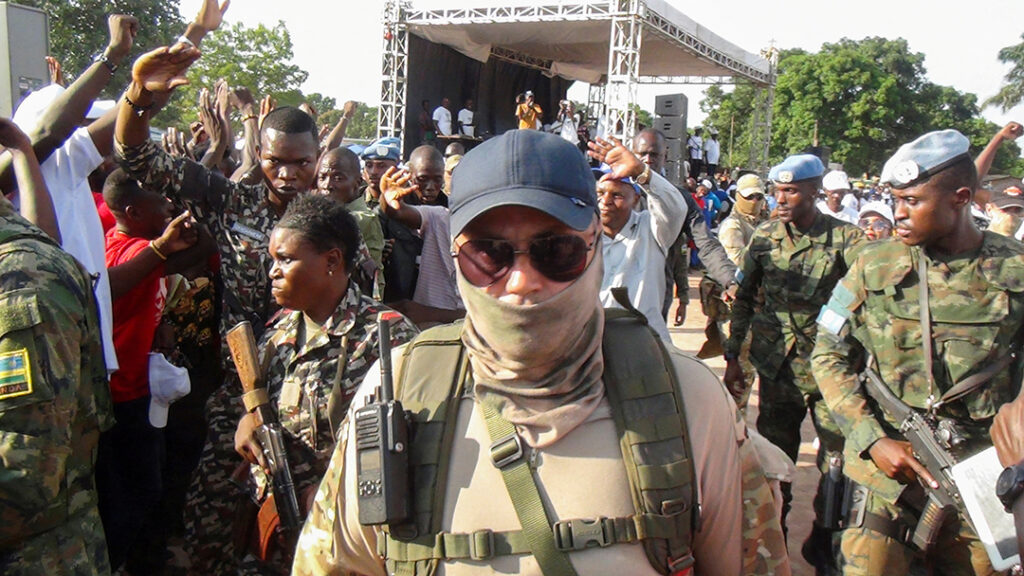ADF STAFF
Since the death of Wagner Group leader Yevgeny Prigozhin in a plane crash in August, some of its mercenaries have moved on to other organizations, while the Russian Ministry of Defense and Prigozhin’s 25-year-old son, Pavel, both claim control over the organization.
“The process of fragmentation began immediately after Prigozhin’s death,” analyst Anton Mardasov, an expert with the Russian International Affairs Council (RIAC) and Middle East Institute, wrote recently for Al-Monitor.
Since arriving in Africa in 2017, Wagner has spread pro-Russian propaganda and committed countless human rights violations while smuggling out gold, diamonds and timber — most recently to fund Russia’s invasion of Ukraine by circumventing international sanctions.
The Wagner Group now appears to have competing leaders. The Kremlin recently appointed Wagner veteran Andrei Troshev to run the operation. Meanwhile, Prigozhin’s will named his son as his successor and inheritor of his wealth and business empire.
Both men appear ready to redirect much of Wagner’s attention back to Ukraine by putting individual Wagner units under the control of Russia’s National Guard. The Russian Defense Ministry’s plan to take total control over Wagner has been stymied by the need to sign individual contracts with each fighter, according to Mardasov.
In the meantime, Wagner mercenaries are scattering to find new employment with other mercenary groups and other countries or are setting up their own enterprises.
“The core of most battle-tested Wagnerites is not joining him [Troshev] for sure,” Kyiv-based analyst Maria Kucherenko, who authored several in-depth reports on Wagner, told Al Jazeera. Troshev ordered a disastrous Wagner attack in Syria in 2018 that cost the group hundreds of lives and left his reputation in ruins, according to experts.
Meanwhile, Russia has begun withholding supplies from Wagner forces based in Africa to pressure them to join the fight in Ukraine. Starting with Sudan in 2017, Wagner’s African footprint has grown to include Libya and Mali, where it offers military force in exchange for rights to mine gold and other mineral wealth.
Wagner has become a dominant force in the Central African Republic, where members serve on the presidential guard, accompany CAR soldiers on operations against rebel groups and even run customs. Wagner-affiliated companies operate mines, sell their own brands of vodka and beer, and sponsor pro-Russian events in the capital, Bangui.
As a result of the Kremlin’s pressure campaign, small numbers of Wagner fighters have begun leaving Africa for Europe.
Bloomberg reported that a Russian contractor is expected to take over Wagner’s operations in the CAR. For now, top Wagner leaders Vitali Perfilev and Dimitri Sytyi continue with business as usual.
Wagner’s extensive business and military operations in Africa remain important economic and diplomatic resources that Russia is unlikely to wind down, experts say. Without Yevgeny Prigozhin at the helm, Wagner’s biggest challenge may be the loss of control over its own future as Russian authorities influence its operations both directly and indirectly.
“A serious issue for Wagner is the question of its self-sufficiency in competition with the Defense Ministry, which so far has been wary of acting tougher to avoid a decline in Russian credibility in the countries where the mercenaries are present,” Mardasov wrote.

